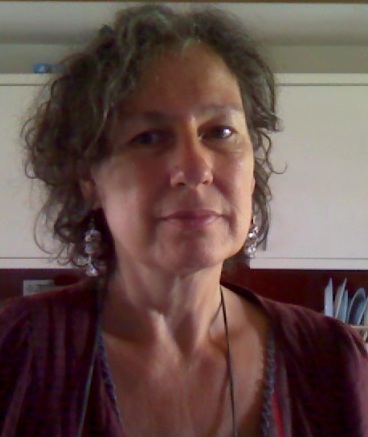
Professor Diana Jeater DPhil (Oxon); FRHistS
Professor of African History History
- Work email Diana.Jeater@liverpool.ac.uk
- About
- Research
- Publications
- Teaching
- Professional Activities
Teaching
My own teaching focuses on two main areas: African/Decolonial History and Learning for Life/Employability skills.
Since Covid, I have been working on ways to involve students much more in the processes of learning, including peer review, curriculum development and defining assessment criteria.
I have presented on this work in a variety of forums, both internally and externally.
*Responses to Covid*:
- Remote Teaching podcast: From the Beatles to Beefheart - Part 1, April 2020
https://www.liverpool.ac.uk/centre-for-innovation-in-education/blog/general/remote-teaching-podcast-beatles-beefheart-1/
- Remote Teaching podcast: From the Beatles to Beefheart - Part 2, April 2020
https://www.liverpool.ac.uk/centre-for-innovation-in-education/blog/general/remote-teaching-podcast-beatles-beefheart-2/
- HLC Spotlight: Towards Active Hybrid Learning - A Period of Reflection, 27 May 2020,
https://www.eventbrite.co.uk/e/hlc-spotlight-towards-active-hybrid-learning-a-period-of-reflection-tickets-106132675690
- Treasure Island Pedagogies: Episode 1 (Parts 1 and 2), June 2020,
https://www.liverpool.ac.uk/centre-for-innovation-in-education/blog/general/treasure-island-discs-pedagogies/
Saetnan, Eli, et al. "An emotional rollercoaster: Exploring HE educators’ experiences of online teaching in a pandemic." Developing Academic Practice 2023.Special (2023): 83-100.http://dx.doi.org/10.3828/dap.2023.6
*Peer review, curriculum development and student partnerships in defining assessment criteria*:
- Impactful SoTL Educational Enterprise Collective (ISEEC), “Making SoTL History”, 11 October 2023
- 'My Magic Hat' series, Educational Development Unit (EDU) at the Academy of Future Education of XJTLU, "Student Focused Activities", 5 March 2024,
https://podcasts.google.com/feed/aHR0cHM6Ly93d3cueGltYWxheWEuY29tL2FsYnVtLzcyMzkxMTEwLnhtbA/episode/eG1seV90cmFja183MTEyNzcxMDI?sa=X&ved=0CAUQkfYCahcKEwiY8KLc44CFAxUAAAAAHQAAAAAQJA
Centre for Innovation in Education, UoLiverpool Resource, 'Synchronous student co-design of a second-year core module in history',
https://www.liverpool.ac.uk/centre-for-innovation-in-education/resources/all-resources/sync-student-co-design-2nd-year-module-history.html
African History
I teach African History, not colonial history. Where white people come into the story, it's from the perspective of Africans, who largely encounter and interact with white people as outsiders and invaders.
I teach African History as ideas, not as narrative. Most people significantly underestimate how big Africa is (Europe, the USA and China could all be comfortably accommodated within Africa's landmass, with plenty of room to spare). They also underestimate how long and complex its history has been. So I don't attempt to teach big survey stories, which would be so general as to be meaningless. Instead, I look at themes that help us to understand the history. That includes learning about, for example, kinship-based politics; witchcraft and territorial cults; healing systems; nationalist movements; and religious institutions, in order to understand how they act as motors of change.
Modules I have taught include:
Themes in African History
Africa and the Black Diaspora: cultural transformations in the Americas and the Caribbean
Health, Healing and Illness in Africa
Adultery, Sexuality & Witchcraft in Southern Rhodesia (Zimbabwe) 1890-1930
Sex & the African City: gender and urbanisation in Southern Africa
Imagining Africa: Tropes of African Identity From Black Native To Black Panther
History in Practice: using your degree in the wider world
Studying History is a good in itself, but most people hope that their History degree will also help them to get a good job. The History Department placement module offers a semester-long work experience in a local museum, archive, library or heritage centre. Placement modules like this significantly enhance employment prospects. But I don't think that placement modules should just be work experience. My approach to placement modules is also about reflecting on how study of the past within the universities links to how 'history' is understood more generally in the wider world. I encourage students to use the placement module to become more aware of how 'the past' is everywhere being constructed in the public sphere, while at the same time developing useful workplace skills and building up an enhanced CV.
Theory and method
History, for me, is a practice. Even theory is a practice: a set of ideas to be used. I have spent many years developing my expertise in teaching students how to study history, how to research effectively, and how to apply theory.
My module 'The Historian's Toolbox for Life' equips students with a range of transferable research skills, preparing them for writing a dissertation but also preparing them for wider applications of those skills. Students are encouraged to work with the tutor to develop the assessment tasks and marking criteria for this module.
Jeater, D. 2018, ‘Theory as practice: moving second year History undergraduates from knowledge acquisition to knowledge construction in a UK university ‘, in Teaching History, Learning History, Promoting History: Papers from the Bielefeld Conference on Teaching History in Higher Education, eds Friederike Neumann & Leah Shopkow, Frankfurt: Wochenschau Verlag, pp 77-93. ISBN 978-3-7344-0685-0